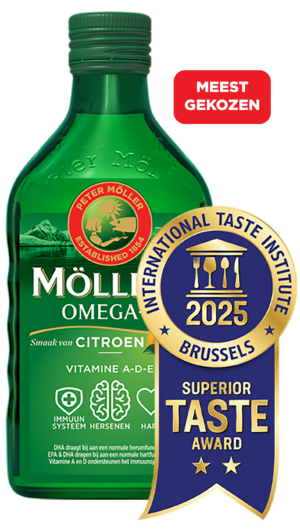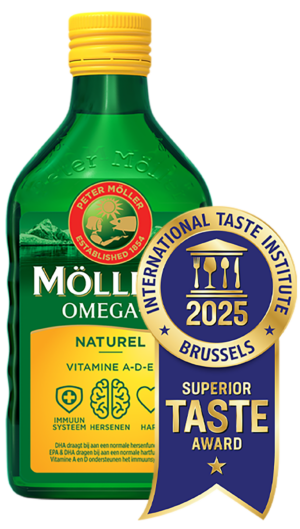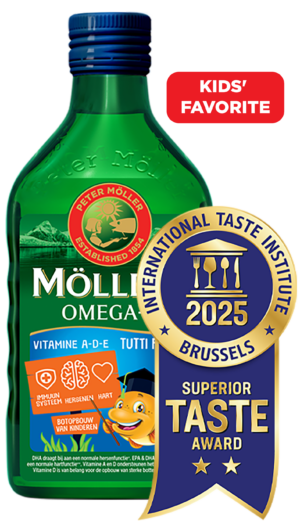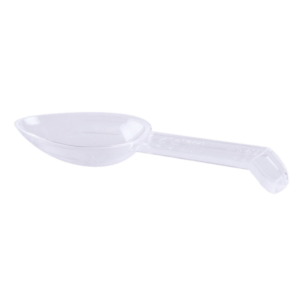Scientific Information for Professionals
Especially for professionals, we share the most recent scientific studies with corresponding links here. Möller’s Omega-3 is pure cod liver oil, rich in omega-3 fatty acids and vitamins A, D, and E. Recent articles about omega-3, vitamin D, cod liver oil, fish oil, and COVID-19 are mentioned here. The health claims approved by EFSA can be found here.
COVID-19
Vitamin D3 and Severity of Illness Due to COVID-19
February 3, 2022, link to scientific article: Pre-infection 25-hydroxyvitamin D3 levels and association with severity of COVID-19 illness.
Since the beginning of the pandemic, many research reports have been published on the relationship between vitamin D and illness caused by the COVID-19 virus. The conclusion of this recent study was: “In hospitalized COVID-19 patients, pre-infection vitamin D deficiency was associated with increased disease severity and mortality.”
Omega-3 Fatty Acids and Risk of Death from COVID-19
January 20, 2021, link to scientific article: Blood omega-3 fatty acids and death from COVID-19: A pilot study
On January 20, 2021, a new study was published on the relationship between omega-3 index level and risk of death from COVID-19. One of the authors is Prof. William Harris, one of the world’s leading scientists in omega-3 research. This is a pilot study with 100 patients. The results of this study suggest that a higher omega-3 index may lower the risk of death from COVID-19.
This is the first direct evidence that higher omega-3 blood levels may reduce the risk of death from COVID-19 infection. The article was published on January 20, 2021, in the journal Prostaglandins, Leukotrienes and Essential Fatty Acids.
Omega-3 Fatty Acids, Vitamin D, and COVID-19
November 30, 2020, link to scientific article: Dietary supplements during the COVID-19 pandemic: insights from 1.4M users of the COVID Symptom Study app – a longitudinal app-based community survey
Since the beginning of the pandemic, approximately 1.4 million people have participated in a survey about dietary supplement use. Residents of the United Kingdom, the United States, and Sweden were part of the study population. These results were released at the end of 2020.
In this observational study, a modest but significant association was observed between the use of probiotics, omega-3 fatty acids, multivitamin or vitamin D supplements and a lower risk of testing positive for SARS-CoV-2 in women. No clear benefits were observed for men, nor any effect of vitamin C, garlic, or zinc for men or women.
Brain
GOED (Global Organization for EPA and DHA omega-3) has created an overview of the most interesting studies on omega-3 and brain disorders.
The overview (in English) can be downloaded here: Brain Health Monograph
Less Migraine with Omega-3-Rich Diet
July 1, 2021, link to scientific article: Dietary alteration of n-3 and n-6 fatty acids for headache reduction in adults with migraine: randomized controlled trial.
A diet rich in omega-3 fatty acids reduces the frequency and severity of headaches in migraine compared to a diet with normal intake of omega-3 and omega-6 fatty acids.
This research demonstrates the importance of omega-3 fatty acids in migraine. In some cases, the dietary intervention was as effective as medication.
Heart
GOED (Global Organization for EPA and DHA omega-3) has created an overview of the most interesting studies on omega-3 and heart disorders.
The overview (in English) can be downloaded here: Cardiovascular Health Monograph
Higher Omega-3 Index Increases Life Expectancy by 5 Years
July 22, 2021, link to scientific article: Using an erythrocyte fatty acid fingerprint to predict risk of all-cause mortality: the Framingham Offspring Cohort.
The omega-3 blood level appears to be a good predictor of mortality risk. Higher omega-3 values in the blood increase life expectancy by almost five years. This is comparable to the effect of quitting smoking on life expectancy.
An increase of 1% in omega-3 in the blood is associated with a reduction in mortality risk comparable to quitting smoking.
Effect of Omega-3 Dosage on Cardiovascular Parameters and Prevention of Cardiovascular Diseases
September 17, 2020, link to scientific article: Effect of Omega-3 Dosage on Cardiovascular Outcomes – An Updated Meta-Analysis and Meta-Regression of Interventional Trials
The conclusion of this study is: cardiovascular diseases remain the leading cause of death worldwide. Supplementation with EPA and DHA is an effective lifestyle strategy for the prevention of cardiovascular diseases, and the protective effect likely increases with dosage.
A link to a useful infographic of this research: EPA and DHA omega-3s are associated with improved heart health.
The recommendation is to consume at least 1000 mg EPA + DHA per day.
Eyes and Vision
GOED (Global Organization for EPA and DHA omega-3) has created an overview of the most interesting studies on omega-3 and eye disorders.
The overview (in English) can be downloaded here: Eye Health Monograph
Joints
GOED (Global Organization for EPA and DHA omega-3) has created an overview of the most interesting studies on omega-3 and joint disorders.
The overview (in English) can be downloaded here: Joint Health Monograph
Pregnancy
DHA Reduces Risk of Preterm Birth
May 17, 2021, link to scientific article: Higher dose docosahexaenoic acid supplementation during pregnancy and early preterm birth: A randomised, double-blind, adaptive-design superiority trial
The ADORE study (Assessment of DHA on Reducing Early Preterm Birth) by Dr. Susan Carlson and her colleagues was published in May 2021: “The results of this randomized clinical trial show that a daily supplement of 1000 mg DHA is likely better than 200 mg in reducing early preterm births before 34 weeks of pregnancy, and very likely better in pregnant women with low DHA status.” A higher dosage of DHA appears to be more effective in protecting against preterm birth.







